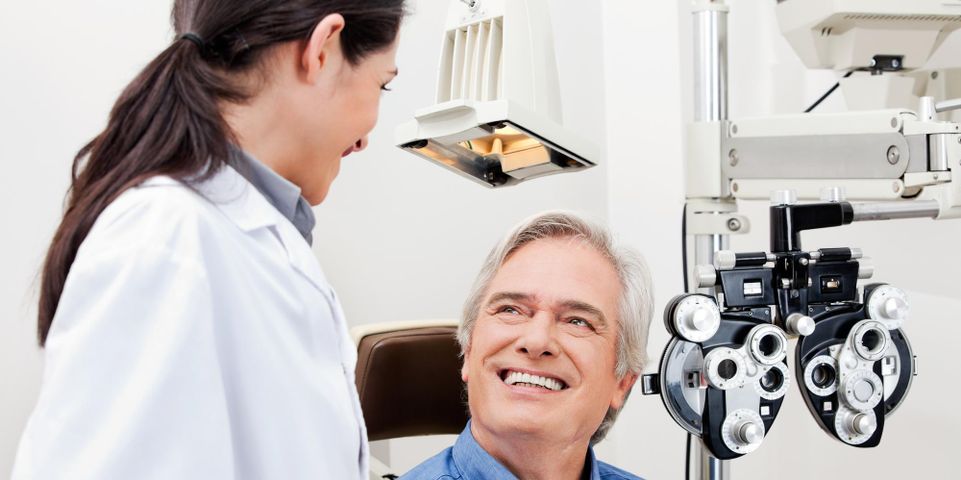
Individuals with diabetes may be at risk of developing some types of eye disease. All of these conditions require the care of a qualified eye doctor. Here’s everything that you need to know about how it can affect you, and what you can do to manage your symptoms.
Your Diabetic Eye Disease Questions Answered
What is diabetic eye disease?
People with diabetes may develop eye problems because of chronically elevated blood sugar levels. High glucose can cause a variety of concerns, ranging from blurry vision and cataracts to retinopathy and glaucoma. Many problems occur when sugar levels damage the blood vessels in the retina. That can cause them to leak. Fluid may also accumulate in the macula or the area that allows you to look straight ahead. This can cause blurry vision. Diabetics are also more at risk of developing glaucoma, which is caused by pressure that builds up within the eye, and cataracts, which occur when the eye’s natural lens clouds up. People with diabetes are statistically about 60% more likely to develop cataracts and 40% more likely to develop glaucoma.
What are some common symptoms?
 Symptoms of diabetic eye disease vary. In many cases, they don’t present at all until the damage becomes more prevalent, at which point it may be difficult for an eye doctor to treat. Common effects include blurriness, dark spots, floaters, and light flashes. These symptoms may come and go, or they may grow more persistent as the problem worsens. It’s crucial to see a professional if you detect any vision changes.
Symptoms of diabetic eye disease vary. In many cases, they don’t present at all until the damage becomes more prevalent, at which point it may be difficult for an eye doctor to treat. Common effects include blurriness, dark spots, floaters, and light flashes. These symptoms may come and go, or they may grow more persistent as the problem worsens. It’s crucial to see a professional if you detect any vision changes.
How are these diseases diagnosed?
The first step is to schedule a comprehensive eye exam. Your eye doctor will dilate the eyes to enlarge the pupils, which will make it easier to see the backs of the eyes. The exam also includes a vision test and pressure measurements. Diabetics should see their eye care professionals regularly to take a proactive stance. Individuals with type 1 should begin annual exams within the first five years of being diagnosed; those with type 2 should see their doctor immediately after they receive their diagnosis.
What kinds of treatments are available?
In addition to paying regular visits to the doctor, it’s important to manage the symptoms of diabetes and monitor your blood sugar levels. Several treatment options are available depending on the severity of the disease. In some cases, medication may be appropriate for minimizing vision loss; in other cases, laser treatments could help prevent the worsening of the disease. Cataract surgery is also useful in improving vision.
If you’re a diabetic, you can trust in Joseph Van Keuren, O.D. in Elyria, OH, to provide you with compassionate, experienced eye care. This eye doctor is committed to your good health and offers a variety of services, including complete eye exams, along with prescriptions for glasses and contact lenses. Dr. Keuren has extensive experience treating diabetic eye disease, including macular edema and cataracts. Visit the website for information, or call (440) 365-2021 to schedule an appointment.
About the Business
Have a question? Ask the experts!
Send your question

